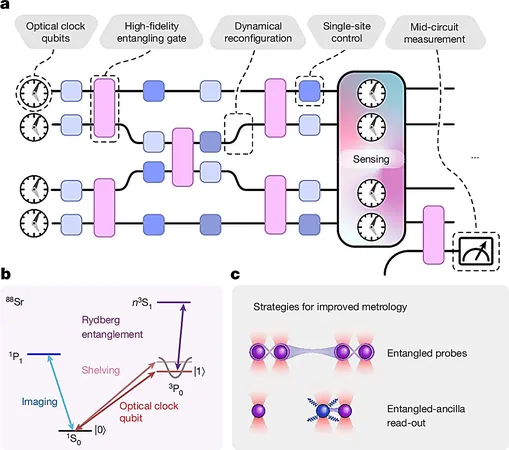
Breakthrough in Endometriosis: A Non-Invasive Stool Test and Possible Treatment on the Horizon!
2024-10-11
Author: Sophie
Introduction
In a groundbreaking study, researchers from Baylor College of Medicine and their collaborators may have unlocked the door to a game-changing non-invasive stool test and a novel therapy for endometriosis—a painful and debilitating condition that impacts nearly 200 million women globally. The research has been published in the esteemed journal Med, showcasing a significant advancement in the fight against this often-misunderstood disease.
Understanding Endometriosis
Endometriosis occurs when tissue similar to the lining inside the uterus begins to grow outside it, attaching to organs like the intestines and the abdominal cavity. This condition leads to a host of symptoms including severe pain, heavy bleeding, inflammation, and infertility, yet it takes an average of seven years for a definitive diagnosis. Unfortunately, many women are misdiagnosed with gastrointestinal disorders during this frustrating delay. Experts, including Dr. Rama Kommagani, a key investigator and associate professor in Pathology and Immunology at Baylor, emphasize the urgent need for better diagnostic and treatment options.
The Role of Gut Microbiome
The researchers previously noted that the gut microbiome—the diverse community of bacteria residing in the digestive system—plays a role in the progression of endometriosis. In this latest study, they compared the stool of women suffering from endometriosis with that of healthy women and found significant differences in bacterial composition and metabolites.
Key Discoveries
Among the discoveries, a compelling metabolite known as 4-hydroxyindole stood out. Produced by beneficial bacteria, its levels were found to be lower in women with endometriosis. Dr. Chandni Talwar, the first author of the study and postdoctoral associate in Dr. Kommagani's lab, noted that these findings are immensely promising, marking the first identification of a unique metabolite profile tied to human endometriosis. This breakthrough paves the way for enhanced understanding and potentially improved management strategies for the disease.
Potential Treatment Insights
What’s even more astonishing is the researchers' revelation that administering 4-hydroxyindole to animal models not only halted the onset of endometriosis but also mitigated inflammation and pain associated with the condition. Could this be the key to unlocking effective treatments?
Connections to Inflammatory Bowel Disease
Furthermore, the metabolic profile discovered in women with endometriosis mirrors those seen in inflammatory bowel disease (IBD), indicating a potential link between the two conditions and hinting at wider implications for gastrointestinal health.
Future Prospects
As Baylor's researchers forge ahead, their focus remains on developing a non-invasive stool test that could revolutionize the detection of endometriosis, thus alleviating the need for invasive procedures that can often be painful and inconclusive. Simultaneously, they are diligently evaluating the safety and efficacy of 4-hydroxyindole as a treatment option.
Conclusion
This study offers hope and encouragement to millions of women suffering from endometriosis, shining a light on innovative pathways to diagnosis and therapy. Stay tuned as we follow this exciting development that could forever change the landscape of women's health!









 Brasil (PT)
Brasil (PT)
 Canada (EN)
Canada (EN)
 Chile (ES)
Chile (ES)
 España (ES)
España (ES)
 France (FR)
France (FR)
 Hong Kong (EN)
Hong Kong (EN)
 Italia (IT)
Italia (IT)
 日本 (JA)
日本 (JA)
 Magyarország (HU)
Magyarország (HU)
 Norge (NO)
Norge (NO)
 Polska (PL)
Polska (PL)
 Schweiz (DE)
Schweiz (DE)
 Singapore (EN)
Singapore (EN)
 Sverige (SV)
Sverige (SV)
 Suomi (FI)
Suomi (FI)
 Türkiye (TR)
Türkiye (TR)